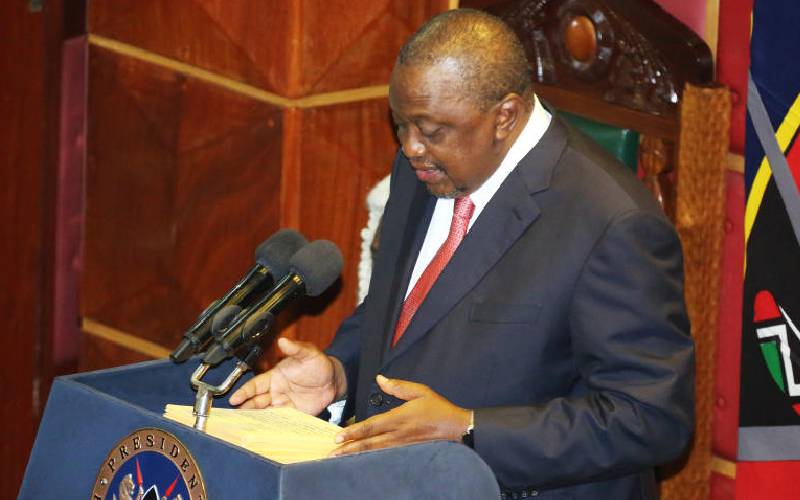×
The Standard e-Paper
Home To Bold Columnists

President Uhuru Kenyatta during the State of the Nation address at Parliament, Nairobi. November 30, 2021. [David Njaaga, Standard]
In another life, time and place, I would have loved not to be the one writing this article today. But three things leave me with no option other than sharing a few thoughts on the 8th State of the Nation Address by President Uhuru Kenyatta.